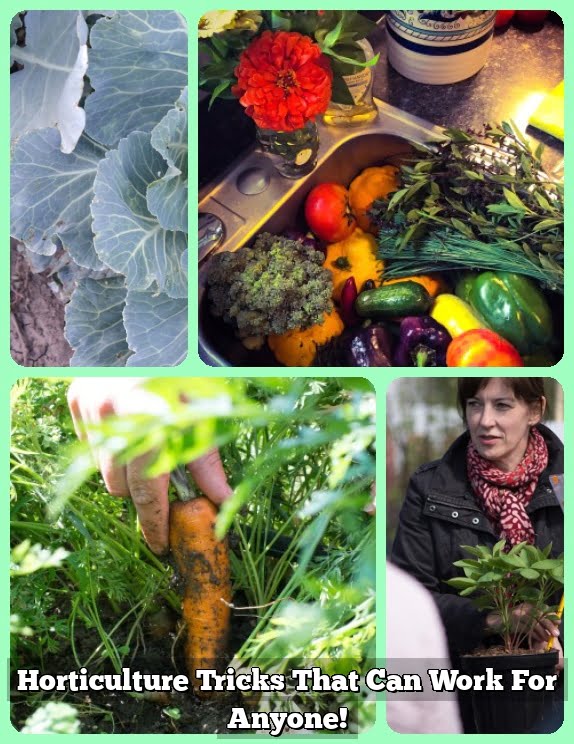Preen is a popular weed control product that is widely used in gardens to keep unwanted plants at bay. Gardeners often wonder, “Does Preen work in vegetable gardens?” In this article, we will explore the effectiveness of Preen in vegetable gardens and discuss its pros and cons.
Preen is designed to prevent weed seeds from germinating, thereby reducing the need for manual weeding. It offers an effective way to maintain a well-groomed garden without having to constantly battle with unsightly weeds. However, when it comes to using Preen in vegetable gardens, there are certain factors to consider, such as potential impact on the growth of vegetables and overall garden health.
In this article, we will delve into the different types of Preen products available and how they can be applied in vegetable gardens. We will also discuss common misconceptions about Preen and explore alternative methods for weed control.
Lastly, we will provide tips for maximizing the effectiveness of Preen in vegetable gardens and showcase case studies and success stories of its use. Whether you’re new to gardening or a seasoned pro, understanding the role of Preen in vegetable gardens is essential for maintaining a thriving and flourishing garden space.
Understanding the Different Types of Preen Products
When it comes to using Preen in vegetable gardens, it’s important to understand the different types of products available. Preen offers a variety of weed control solutions that cater to specific needs and preferences of gardeners. The two main types of Preen products are pre-emergent weed preventers and garden weed preventers.
Pre-Emergent Weed Preventers
Preen’s pre-emergent weed preventers are designed to stop weeds from germinating in the soil, making them ideal for use in vegetable gardens. These products create a barrier that prevents weed seeds from sprouting, effectively reducing the need for manual weeding. This type of Preen product is best applied early in the season before weeds have a chance to take hold.
Garden Weed Preventers
On the other hand, Preen’s garden weed preventers are formulated to be used around established plants and can be applied at any time during the growing season. These products work by creating a weed-control barrier that prevents new weeds from taking root while allowing vegetables to thrive without competition. This type of Preen product is an excellent choice for maintaining a well-tended vegetable garden throughout the growing season.
Understanding the differences between these two types of Preen products is essential for effectively using them in vegetable gardens. By selecting the right product for your specific needs and applying it correctly, you can harness the benefits of Preen while minimizing any potential drawbacks when using it in your vegetable garden.
Pros and Cons of Using Preen in Vegetable Gardens
Benefits of Using Preen in Vegetable Gardens
Preen is a popular weed control product that is designed to prevent weeds from germinating and growing in garden beds. When used correctly, Preen can help reduce the amount of time and effort spent on weeding, allowing vegetable plants to thrive without competition for nutrients and water. Additionally, Preen can be effective at controlling a wide variety of common weeds without harming the vegetables themselves.
Potential Drawbacks of Using Preen in Vegetable Gardens
Despite its benefits, there are some potential drawbacks to using Preen in vegetable gardens. One concern is that the chemicals in Preen may inhibit the growth of desirable plants if not applied properly.
Additionally, some gardeners worry about the environmental impact of using chemical weed killers in their gardens, especially if they plan to eat the produce they grow. It’s important to carefully weigh these potential drawbacks against the benefits before deciding whether or not to use Preen in your vegetable garden.
Considerations for Safe and Effective Use
To maximize the benefits of using Preen while minimizing potential drawbacks, it’s important to read and follow all instructions provided by the manufacturer. This includes applying the product at the right time and in the right amounts, as well as taking precautions to protect any desired plants from potential harm. Additionally, choosing organic or natural alternatives to traditional Preen products may be a good compromise for those concerned about chemical exposure in their vegetable gardens.
How to Apply Preen in Vegetable Gardens
Applying Preen in vegetable gardens is a straightforward process that involves a few simple steps. The first step is to wait until the soil temperature reaches at least 55 degrees Fahrenheit, as this is the optimal temperature for weed seeds to germinate. Once the soil is ready, carefully read the instructions on the Preen product label to determine the appropriate application rate for your vegetable garden.
Next, it’s important to prepare the soil by removing any existing weeds and debris from the area. After preparing the soil, evenly distribute Preen granules or apply Preen spray over the garden bed. Be careful not to apply Preen directly to plants or seeds, as it may cause damage. Once applied, lightly water the treated area to activate the product and allow it to create a weed-preventing barrier.
It’s crucial to follow all safety precautions and guidelines provided by Preen when applying their products to your vegetable garden. Additionally, it’s essential to store any unused Preen products in a secure location away from children and pets. When used correctly, Preen can effectively prevent weed growth in vegetable gardens and save gardeners valuable time and effort in maintaining their crops.
| Application Tips | Description |
|---|---|
| Wait for Optimal Soil Temperature | Ensure that soil temperature reaches at least 55 degrees Fahrenheit before application. |
| Prepare Soil | Remove existing weeds and debris from the area before applying Preen. |
| Follow Product Instructions | Read and follow the instructions on the Preen product label for appropriate application rates. |
| Water Treated Area | Lightly water the treated area after applying Preen to activate the product. |
Common Misconceptions About Preen and Vegetable Gardens
Many gardeners have misconceptions about using Preen in their vegetable gardens, especially when it comes to its effectiveness and potential impact on the food they grow. It is important to address these misconceptions in order to make an informed decision about whether or not to use Preen in your vegetable garden.
One common misconception about Preen is that it will harm or inhibit the growth of vegetables. However, when used correctly, Preen should not have any negative effects on your vegetable plants. It is designed to target weed seeds and prevent them from growing, without affecting the growth of your desired plants.
Another misconception is that Preen is not effective at controlling weeds in vegetable gardens. While some gardeners may not see the results they expected, it could be due to improper application or not using the right type of Preen for their specific needs. Understanding the different types of Preen products and how to properly apply them can greatly increase their effectiveness in controlling weeds in vegetable gardens.
To address these common misconceptions, here are some key points to consider:
- Use the appropriate type of Preen for your vegetable garden, such as Preen Garden Weed Preventer.
- Follow the instructions for application carefully, ensuring that you apply the product before weed seeds germinate.
- Monitor your garden regularly to assess the effectiveness of Preen and make any necessary adjustments.
Alternatives to Preen for Weed Control in Vegetable Gardens
When it comes to weed control in vegetable gardens, Preen is a popular choice for many gardeners. However, there are also alternative methods that can be just as effective.
One alternative to using Preen in vegetable gardens is mulching. Mulch not only helps to retain soil moisture and regulate temperature, but it also prevents weeds from germinating and growing. Organic mulches such as wood chips, straw, or newspaper can be used to cover the soil around your vegetable plants, effectively smothering any potential weeds.
Another alternative to Preen is hand weeding. While it may be more labor-intensive, hand weeding allows you to selectively remove weeds without the use of chemicals. This method is especially useful for small vegetable gardens where the use of herbicides may not be practical or desirable.
Some gardeners also opt for homemade weed sprays as an alternative to commercial products like Preen. These homemade solutions often utilize natural ingredients such as vinegar, salt, and dish soap to effectively control weeds without harming your vegetable plants.
Overall, while Preen is a popular choice for weed control in vegetable gardens, there are several effective alternatives that gardeners can consider based on their preference for organic methods or their willingness to put in the extra effort required for some of these alternatives.
| Method | Effectiveness |
|---|---|
| Mulching | High – prevents weed germination and growth |
| Hand Weeding | Moderate to high – labor-intensive but selective and chemical-free |
| Homemade Weed Sprays | Moderate – natural ingredients may offer limited effectiveness compared to commercial herbicides |
Tips for Maximizing the Effectiveness of Preen in Vegetable Gardens
When it comes to using Preen in vegetable gardens, there are several tips and best practices that can help maximize its effectiveness in controlling weeds and promoting the healthy growth of your vegetable plants. Here are some tips to consider:
1. Proper Timing: Apply Preen to your vegetable garden at the right time to ensure maximum effectiveness. It is recommended to apply Preen after weeding and when the soil is dry. This will allow the herbicide to create a barrier that prevents weed seeds from germinating.
2. Correct Application: When using Preen in your vegetable garden, make sure to follow the instructions on the product label for proper application. Spread a consistent layer of Preen over the soil surface, ensuring even coverage without over-application.
3. Regular Maintenance: While Preen can help control weeds in your vegetable garden, it is essential to continue with regular maintenance tasks such as mulching, hand weeding, and watering to further support the health of your vegetable plants.
4. Monitor and Reapply: Keep an eye on your vegetable garden for any signs of new weed growth. If necessary, reapply Preen according to the recommended schedule to maintain its weed control benefits.
5. Consider Companion Planting: Some gardeners have found success in combining Preen with companion planting techniques, such as interplanting vegetables with certain herbs or flowers that naturally deter pests and weeds.
By following these tips, you can make the most out of using Preen in your vegetable garden and enjoy a healthier, weed-free growing environment for your vegetables.
Case Studies and Success Stories of Using Preen in Vegetable Gardens
In conclusion, the use of Preen in vegetable gardens can be an effective way to control weeds and promote healthier plants. While some gardeners swear by its effectiveness, others have found it to be less successful in their specific circumstances. It is important to weigh the pros and cons of using Preen in vegetable gardens before deciding whether or not to incorporate it into your gardening routine.
One of the main benefits of using Preen in vegetable gardens is its ability to prevent weed seeds from germinating, saving gardeners time and effort by reducing the need for manual weeding. Additionally, Preen can help prevent competition for nutrients and water, allowing vegetables to thrive. However, some drawbacks include potential harm to beneficial insects and the risk of chemical contamination in the soil.
While Preen may work well for some gardeners, others may prefer to explore alternative methods for weed control in their vegetable gardens. These can include mulching, hand weeding, or using organic herbicides. Ultimately, each gardener’s unique circumstances and preferences will determine whether Preen is the right choice for their vegetable garden.
Frequently Asked Questions
Is It Safe to Use Preen in a Vegetable Garden?
It is generally not recommended to use Preen in a vegetable garden as it can prevent the growth of desirable plants along with the weeds. The chemicals in Preen can potentially harm edible plants.
What Are the Negative Effects of Preen?
The negative effects of using Preen in a vegetable garden include potential harm to the soil, nearby plants, and the environment. It can also affect beneficial insects and microorganisms that are essential for a healthy garden ecosystem.
How Do I Get Rid of Weeds in My Vegetable Garden?
There are several natural and eco-friendly methods to get rid of weeds in a vegetable garden. These include hand-pulling weeds, mulching with organic materials, using vinegar or salt solutions, or even planting cover crops that outcompete weeds for space and resources. Using these methods will help maintain a healthy and safe environment for growing vegetables.

If you’re looking to get into vegetable gardening, or are just looking for some tips on how to make your current garden better, then you’ve come to the right place! My name is Ethel and I have been gardening for years. In this blog, I’m going to share with you some of my best tips on how to create a successful vegetable garden.





